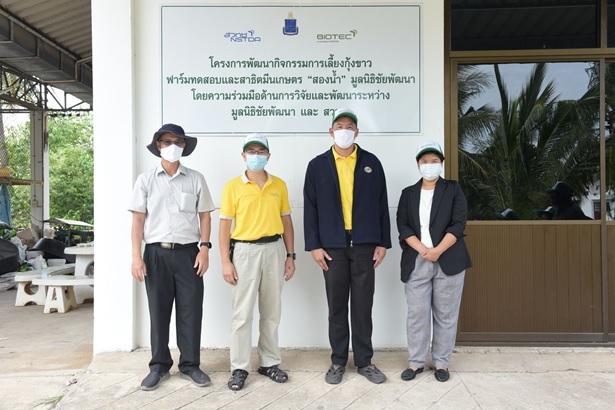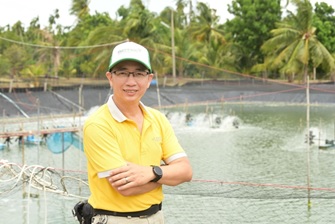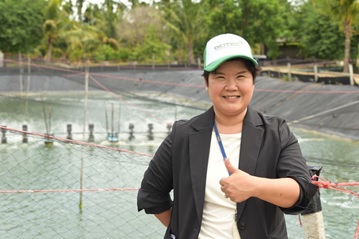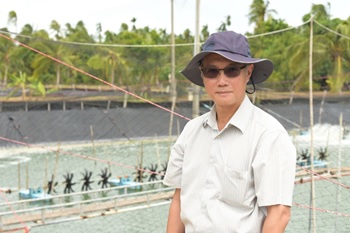NSTDA and the Chaipattana Foundation has established a collaboration on research and demonstration of shrimp cultivation technologies related to at the model farm of Chai Pattana Foundation in Chachoengsao Province. Chai Pattana Foundation’s model farm serves as an experimentation and demonstration site of technologies related to aquaculture for farmers to learn and apply technologies to their farms. The overall goal is to promote sustainable aquaculture in Thailand.


Dr. Sorawit Powtongsook, Director of Integrative Aquaculture Biotechnology Research Group, BIOTEC, revealed that the project has set up two types of shrimp cultivation ponds, namely an earthen pond which is widely practiced among small-scale farms and a polyethylene-lined pond, the method mostly used by commercial-scale intensive farms. Knowledge and technologies will be appropriately applied to each type of pond.

For the earthen pond system, the key of good farm management is water quality. Therefore, a smart system to monitor environmental and water quality – light intensity, precipitation, wind speed and dissolved oxygen - will be tested, along with technologies to promote shrimp health and disease surveillance. For the polyethylene-lined pond, biofloc technology will be employed to maintain water quality in the system and allow the water recirculation, thus eliminating water discharge to the environment.
Dr. Kallaya Dangtip, Aquatic Animal Health Research Team Leader of BIOTEC, added that BIOTEC has long been studying shrimp diseases caused by virus and bacteria. Major shrimp diseases found in Thailand are white spot syndrome (WSS), yellow head disease (YHD), early mortality syndrome (EMS) and vibriosis. Through the studies, a number of diagnostic kits have been developed. BIOTEC will apply this expertise to this project by establishing a field laboratory for farmers to facilitate disease surveillance. In addition, Dr. Kallaya plans to investigate the connection between environmental conditions and disease occurrence in collaboration with an environmental research team and co-develop a shrimp disease surveillance device for farmers with NECTEC research team.

Mr. Seksun Sartsatit, Embedded System Technology Research Team Leader, NECTEC, provided information on the automated water quality monitoring system and weather station installed at the project site. The water quality monitoring system measures dissolved oxygen, temperature, pH whereas the weather station provides data on humidity, wind speed, wind direction, precipitation and light intensity. All data are transmitted to a server and can be viewed by users via website. A daily summary of water and environmental quality can also be sent to users via LINE application.

The project also plans to include technologies developed by other NSTDA research centers, partner universities and government agencies to make this model farm a comprehensive site for learning and developing sustainable aquaculture practices for Thai shrimp farmers.
